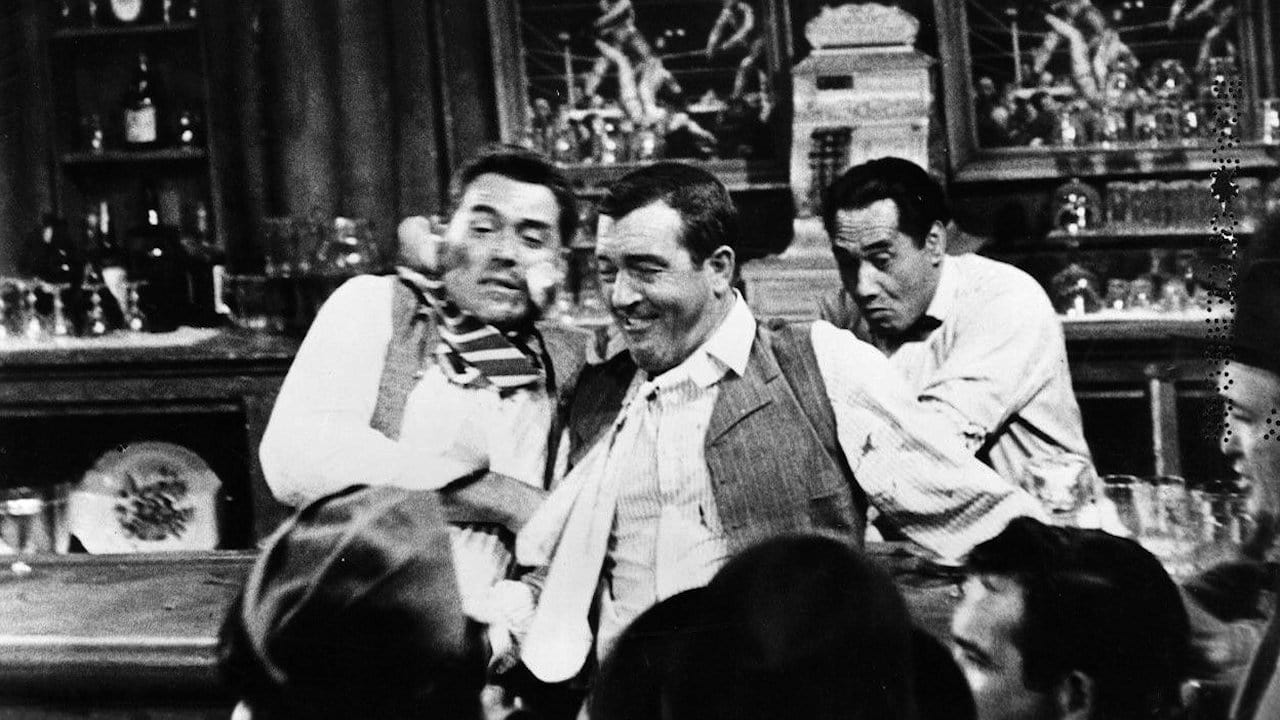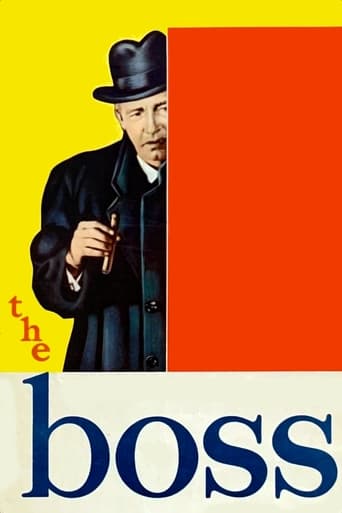

John Payne worked hard to overcome his image as a handsome leading man by turning to more character-like roles in the 1950s, and actually producing a few films. He was effective, but like anyone else, he needed a good direction."The Boss" from 1956, written by the blacklisted Dalton Trumbo under the name of Ben Perry, could have used such a director. Based on the story of Kansas City political boss Tom Pendergast, it tells the story of this powerful man whose reign lasted from the end of World War I to the beginning of World War II.Some of this is fiction, and some is fact. The personal life situation is fictional. In this film, the main character, Matt Brady (Payne) marries a woman, Lorry (Gloria McGehee) described by him as a "beat up alley cat" one night while drunk and after being rejected by his true love Elsie (Doe Avedon). All we hear about in this movie is how homely Lorry is, when in fact, at 35, she's a few years older than Doe Avedon and good-looking. To me it was bad casting. Maybe I missed a second head or something.Brady is a crooked politician who steps on his enemies (including a country club where he was blackballed) and, as he rises in power, uses anything and everything to get his way and wangle big profits for himself. It's a well-oiled machine and includes his best friend, Bob Herrick (William Bishop) and others he can control. Eventually, though, things catch up with him."The Boss" is somewhat overblown, with Payne yelling through most of it, when he isn't drunkenly punching somebody out. It's way over the top, and I for one lost interest in the story quickly.Not really much to recommend this. Doe Avedon, who plays Elsie, was the inspiration for the Audrey Hepburn character in "Funny Face."
... View MoreSorry if that title confuses but, watching this on TCM recently I was convinced this was made in the early 40's so was amazed to see the 1956 date on it. It was the staging and story arc so reminiscent of several Bogart and Cagney movies that made it seem so dated in it's overall production.That being said, John Payne gives a powerful and well nuanced performance as a man whose inner turmoil of unrequited love, filial duty and tussles with what is "right" (feeling he has to marry a one night stand) and the attraction of an easy but crooked lifestyle are visible on his gradually hardening features as he ages - nicely done.Based clearly on the Pendegast machine of the 20's and 30's the action becomes a little stereotyped, with the "good citizens" of the town having to include a priest as a sign of moral rectitude.Brady's downfall in the Crash of 1929 is perhaps a little convenient (a sharp guy like this would have had hot cash stashed in many accounts and ensured that the diamonds seen earlier were part of a large collection of readily realizable assets but, I digress)and the heavy symbolism of the final shot of Payne shuffling towards the shadow of a tall, barred prison gate, dropping the cigar that had been his symbol of success owes much to the existential films coming out of many central European studios at the time.An excellent central performance but Dalton Trumbo's uncredited screenplay lays on the "truth prevails" message too heavily.
... View MoreBased on the story of Boss Tom Pendergast of Kansas City who ruled the roost there succeeding brother Jim from World War I until the outbreak of World War II, John Payne delivers a riveting portrayal of a political boss back in the day when these guys were at their heights running our nation's cities. Mostly, but not all were Democrats who rounded up and registered the foreign ethnic populations and got them to vote for the party slate. In the days before social welfare became a responsibility of government, these bosses while they enriched themselves also fed a lot of hungry people, giving them food and fuel for a winter. Tom Pendergast was no exception there.When talking about some of the facts of the Pendergast machine operation, the screenplay by Dalton Trumbo under the pseudonym Ben L. Parry sticks pretty close to the facts. In fact Pendergast did do the things described in the film to a country club that high hatted him. The romantic angle however of Payne being in love with Doe Avedon who married best friend William Bishop and then marrying plain Jane Gloria McGehee in a moment of drunken weakness is a complete fabrication. In fact Pendergast's private life as far as we know was a model of probity and he and his wife raised several children, unlike here where he's shown to be a man alone even keeping his wife at room's length away.The character of Joe Flynn, later Captain Binghamton on McHale's Navy is Harry Truman who was a county judge (commissioner) for Jackson County, Missouri and later United States Senator. Truman himself was honest, but he also winked and nodded at the corruption of others and some of the cronies he put into office as president embarrassed him no end.Ward Boss Roy Roberts, Payne's brother is James Pendergast and it is true he ran a good chunk of Kansas City from his saloon. It's also quite true that Pendergast did make a deal with organized crime there who did open speakeasies in Kansas City like every place else in the USA. The famous Kansas City massacre did have a bad effect on his public image although not as immediately influential in bringing him down as shown in The Boss. The Boss is a no frills uncompromising look at the soft underbelly of corruption in America back in the day. It's a well acted drama with John Payne in one of his best dramatic performances.
... View MoreThe Boss, filmed from a script by the blacklisted and hence uncredited Dalton Trumbo, starts in 1919 and ends somewhere in the Great Depression. It's about the corruption of a municipal machine that focuses on demobbed doughboy John Payne who, when his older brother dies, inherits his political clout. On the night of his return he godrunk and married a stranger he comes to scorn (Gloria McGhee, whomakes you yearn for more of her). His only unwavering loyalty lies withan old wartime buddy (William Bishop), who has married the girl Payne loved. So all his passion goes into strengthening his hold over the city, including forging an unholy alliance with the (unnamed) Mafia.Despite a precisely staged shootout in the train depot (did Brian De Palma borrow from this as well as from The Battleship Potemkin, for The Untouchables?), The Boss is really a somewhat Kane-ish look at the rise and fall of a lone wolf; Payne's tough yet touching performance lends an almost tragic tinge. The result is an involving period piece that dwells on the late fringes of film noir. (One topical note: the men's costumes were by Dick Cheney.)
... View More